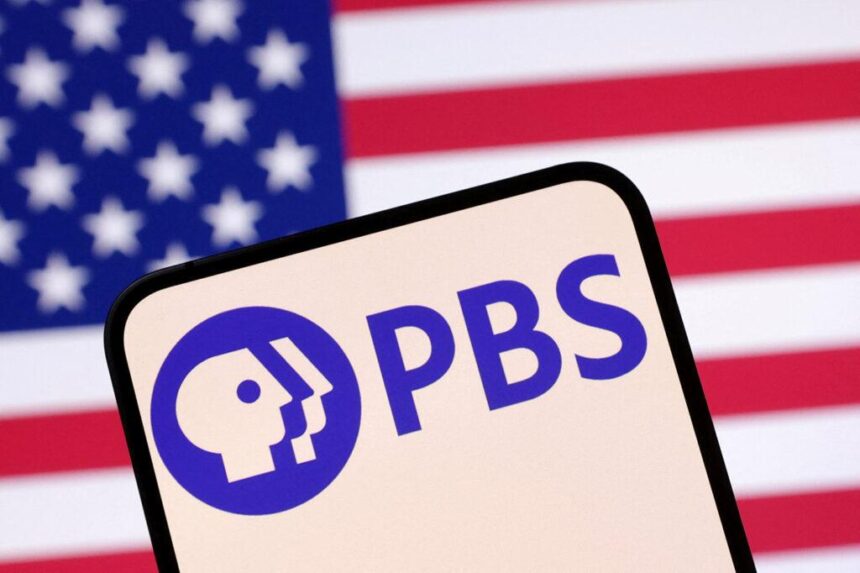Public Broadcasters Challenge Trump Governance Over Federal Funding Reductions
PBS Initiates Legal Battle Against Federal Funding Cuts
The Public Broadcasting Service (PBS) has formally filed a lawsuit contesting the Trump administration’s recent decision to reduce federal funding. This legal action follows closely on the heels of a similar suit filed by National Public Radio (NPR) just days earlier, signaling a mounting confrontation between public media entities and the federal government regarding financial support. PBS contends that these funding reductions severely impair their capacity to deliver educational and culturally significant programming to a broad spectrum of American viewers, contravening protections established under federal statutes.
In its complaint, PBS highlights several critical concerns:
- Endangerment of educational outreach: The funding cuts threaten programs serving millions of K-12 students nationwide.
- Diminished programming diversity: Reduced budgets limit content aimed at minority populations and rural communities.
- Possible violation of federal funding agreements: Laws require consistent financial support to sustain public broadcasting operations.
Both PBS and NPR emphasize that their lawsuits aim not only to restore funding but also to reaffirm the indispensable role of public media in American democracy.
| Public Media Outlet | Percentage of Funding Cut | Main Area of Concern |
|---|---|---|
| PBS | 30% | Educational and Cultural Programming |
| NPR | 28% | News Reporting and Community Outreach |
Simultaneous Legal Actions: NPR Joins the Fight
NPR’s lawsuit, filed just three days prior to PBS’s, similarly challenges the Trump administration’s decision to curtail funding for public broadcasters. Both organizations assert that these cuts represent an infringement on First Amendment rights, accusing the administration of attempting to silence media outlets that provide critical perspectives on government policies. This dual litigation highlights a growing dispute over the sustainability of public broadcasting funding and raises alarms about press freedom and potential governmental overreach.
Legal analysts suggest the timing and content of these lawsuits indicate a coordinated strategy to confront what both NPR and PBS view as unconstitutional defunding. Key elements of their legal arguments include:
- Allegations of political censorship: Both broadcasters claim the funding reductions are retaliatory measures aimed at suppressing dissenting voices.
- Reference to judicial precedents: The cases cite landmark decisions that protect editorial independence of publicly funded media.
- Nationwide ramifications: A favorable ruling could strengthen protections for public media organizations across the country.
| Party | Entity | Legal Focus |
|---|---|---|
| Plaintiff | NPR | Funding cuts as political retaliation |
| Plaintiff | PBS | Violation of First Amendment rights |
| Defendant | Trump Administration | Exercise of executive authority over budgets |
Legal Foundations and Broader Consequences of the Funding Disputes
The lawsuits brought by PBS and NPR rest on intricate legal claims concerning federal funding obligations to public broadcasting entities.Both plaintiffs argue that the Trump administration’s decision to withhold funds breaches the Public Broadcasting Act of 1967, which mandates steady government support to ensure the independence and diversity of programming. They maintain that arbitrary funding cuts destabilize operations and undermine the public interest by threatening vital educational and cultural content. These claims challenge the administration’s authority, asserting that fiscal decisions cannot override legislative mandates or contractual agreements governing public media grants.
Beyond the legal arguments, these cases carry significant policy and political implications. Should the courts rule in favor of PBS and NPR,it could establish a precedent curbing executive discretion over appropriations and reinforcing protections for federally funded media outlets. Conversely,a ruling supporting the administration might embolden future funding withdrawals as a political tool,raising serious concerns about media independence and democratic accountability. This litigation thus spotlights the delicate balance between government authority, press freedom, and the role of public funding in sustaining autonomous journalism.
| Legal Issue | Possible Judicial Outcome | Wider Impact |
|---|---|---|
| Noncompliance with statutory funding requirements | Mandated restoration of funds by court order | Restricts executive power over budget allocations |
| Breach of contractual funding agreements | Compensatory damages or enforcement of contracts | Strengthens legal safeguards for grant recipients |
| First Amendment protections and editorial independence | Injunctions to protect freedom of expression | Maintains public confidence in media integrity |
- Upholding legislative priorities in funding decisions
- Judicial oversight of executive budgetary actions
- Preservation of public interest media services
Approaches for Public Broadcasters to Protect Federal Funding
In response to political pressures threatening their financial support, public broadcasters are adopting complete strategies to safeguard federal funding. Legal challenges, as demonstrated by PBS and NPR’s lawsuits, have become a frontline defense. Concurrently, public media outlets are intensifying grassroots engagement efforts, mobilizing their audiences and local communities to highlight the importance of independent, non-commercial journalism. These initiatives aim to build public advocacy that influences policymakers and underscores the broadcasters’ role as trusted sources of news and culture.
Diversifying revenue streams is another critical tactic. Many public broadcasters are forging partnerships with educational institutions, philanthropic organizations, and private sponsors to lessen reliance on volatile federal budgets. The following table summarizes common strategies employed to defend funding:
- Legislative advocacy: Lobbying elected officials to emphasize public media’s societal value.
- Community involvement: Organizing events and forums to foster local support and activism.
- Alternative funding: Securing grants, memberships, and investing in digital innovation projects.
- Judicial recourse: Pursuing legal action to enforce statutory funding commitments.
| Strategy | Primary Action | Expected Outcome |
|---|---|---|
| Legal Challenges | File lawsuits opposing funding reductions | Delay cuts and raise public awareness |
| Community Outreach | Mobilize listener and viewer advocacy | Strengthen grassroots support |
| Funding Diversification | Develop new revenue sources | Reduce dependence on federal funds |
| Legislative Lobbying | Engage policymakers directly | Influence budgetary decisions |
Final Thoughts: The Future of Public Broadcasting Funding
The intensifying legal disputes over federal funding for public broadcasting underscore the vital role that organizations like PBS and NPR play in delivering independent journalism and educational content. These lawsuits represent a significant challenge to the Trump administration’s funding policies and highlight the ongoing struggle to balance government authority with press freedom.The outcomes of these cases will likely have profound and lasting effects on the sustainability and independence of public media in the United States, shaping the landscape of publicly supported journalism for years to come.










